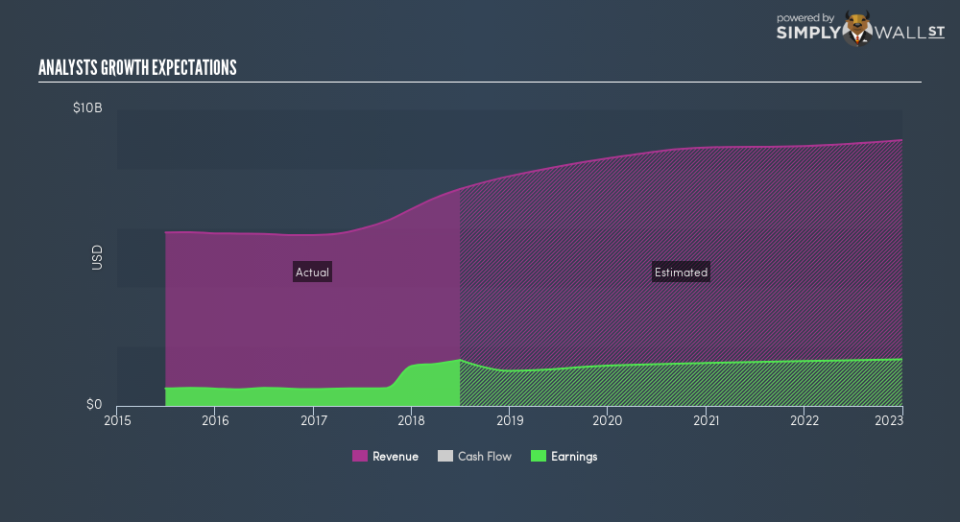United Rentals Inc’s (NYSE:URI) Insiders Have Sold Shares – Should You?

United Rentals, Inc., through its subsidiaries, operates as an equipment rental company. United Rentals’s insiders have divested from 5.00k shares in the large-cap stock within the past three months. Generally, insiders selling shares in their own firm sends a bearish signal. A two-decade research published in The MIT Press (1998) showed that stocks following insider selling declined 2.7% relative to the market. But these signals may not be sufficient to gain confidence on whether to divest. I’ve assessed two potential reasons behind the insiders’ latest motivation to sell their shares.
Check out our latest analysis for United Rentals
Who Are The Insiders?
More shares have been sold than bought by United Rentals’s insiders in the past three months. In total, individual insiders own less than one million shares in the business, or around 0.37% of total shares outstanding.
The insider that recently sold more shares is Donald Roof (board member) .
Is This Consistent With Future Growth?
At first glance, analysts’ earnings expectations of -3.9% over the next three years illustrates negative outlook for the business, consistent with the signal company insiders are sending with their net selling activity.
Delving deeper into the line items, analysts anticipate a double-digit top-line growth over the next year, which has not been passed down into earnings expectations given its negative growth rate of -18.2%. This means cost growth is anticipated to outstrip revenues, indicating a period of investment and growth in the company.
Though, insiders net selling activity suggests a more pessimistic outlook for the company. Or they may merely view any growth potential is overly factored into the share price, providing a favourable time to divest.
Did Stock Price Volatility Instigate Selling?
An alternative reason for recent trades could be insiders taking advantage of the share price volatility. This means, if insiders believe shares were heavily undervalued recently, this would provide a prime opportunity to buy more irrespective of its growth outlook.
In the past three months, United Rentals’s share price reached a high of $171.76 and a low of $144.75. This suggests moderate volatility with a share price movement of 18.66%.
This may not be large enough to warrant any significant divesting, therefore the underlying driver may be the insiders’ belief of company growth prospects or simply their personal portfolio diversification needs.
Next Steps:
United Rentals’s net selling activity tells us the stock has fallen out of favour with some insiders as of late, which is consistent with the significant expected earnings growth, though share price volatility was perhaps inconsequential to cash in on any mispricing. However, it’s important to keep in mind, insider selling may not necessarily be based on their belief of the company’s ability to perform in the future. Furthermore, while insider transactions could be a helpful signal, it is definitely not sufficient on its own to make an investment decision. I’ve compiled two fundamental aspects you should further examine:
Financial Health: Does United Rentals have a healthy balance sheet? Take a look at our free balance sheet analysis with six simple checks on key factors like leverage and risk.
Other High Quality Alternatives : Are there other high quality stocks you could be holding instead of United Rentals? Explore our interactive list of high quality stocks to get an idea of what else is out there you may be missing!
NB: Figures in this article are calculated using data from the last twelve months, which refer to the 12-month period ending on the last date of the month the financial statement is dated. This may not be consistent with full year annual report figures.
To help readers see past the short term volatility of the financial market, we aim to bring you a long-term focused research analysis purely driven by fundamental data. Note that our analysis does not factor in the latest price-sensitive company announcements.
The author is an independent contributor and at the time of publication had no position in the stocks mentioned. For errors that warrant correction please contact the editor at editorial-team@simplywallst.com.


